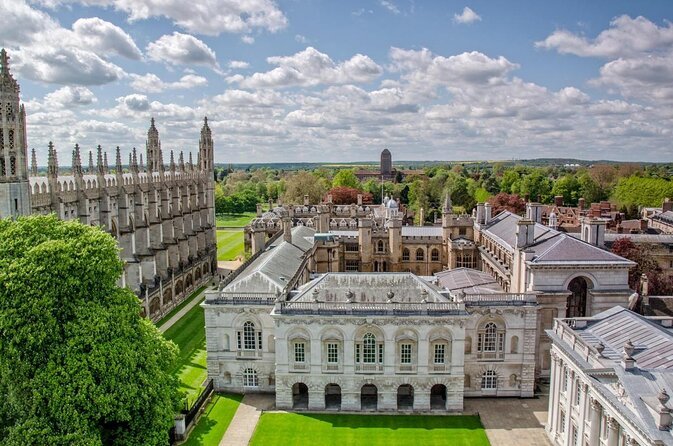History and Heritage
The University of Cambridge, located in Cambridge, England, is one of the oldest and most prestigious universities in the world. Founded in 1209 by scholars fleeing from unrest at the University of Oxford, Cambridge has a rich history that spans over 800 years. The university quickly established itself as a center of learning and intellectual pursuit. Cambridge’s contributions to knowledge and society are significant, with its alumni including influential scientists, writers, and political leaders, such as Isaac Newton, Charles Darwin, and Stephen Hawking.
Structure and Colleges
Cambridge operates a unique collegiate system, consisting of 31 autonomous colleges. Each college functions as an independent institution with its own internal structure, offering accommodation, dining, and social spaces for its members. The colleges are responsible for admitting students and providing small group teaching sessions, known as supervisions. This system fosters a close-knit community atmosphere and provides personalized academic support. The university’s central administration oversees the broader academic framework, including faculties and departments.
Academic Excellence
Cambridge is renowned for its high academic standards and rigorous programs. The university offers a wide range of undergraduate and postgraduate courses across various disciplines, including arts, humanities, social sciences, natural sciences, and engineering. Cambridge consistently ranks among the top universities globally, recognized for its excellence in teaching, research, and innovation. The university’s faculty comprises world-renowned scholars and researchers who contribute to groundbreaking discoveries and advancements in their fields.
Research and Innovation
As a leading research institution, Cambridge is at the forefront of scientific and technological innovation. The university’s research output is vast, encompassing fields such as medicine, physics, engineering, social sciences, and the humanities. Cambridge houses numerous research centers and institutes, fostering interdisciplinary collaboration and addressing global challenges. Notable research achievements include the discovery of the structure of DNA by James Watson and Francis Crick, and significant contributions to climate science, artificial intelligence, and cancer research.
Libraries and Museums
Cambridge boasts an extensive network of libraries, with the University Library being one of the largest legal deposit libraries in the world. It holds over 8 million volumes and offers invaluable resources for students and researchers. Additionally, the university’s museums, such as the Fitzwilliam Museum and the Museum of Zoology, provide rich educational and cultural experiences. These institutions house significant collections of art, artifacts, and scientific specimens, supporting the university’s academic mission and public engagement.
Admissions and Financial Aid
Admission to Cambridge is highly competitive, with a rigorous selection process based on academic merit and potential. Applicants are assessed through a combination of their academic records, standardized test scores, personal statements, and interviews. Cambridge is committed to attracting talented students from diverse backgrounds, offering various financial aid options, scholarships, and bursaries to ensure that financial constraints do not hinder access to education. The university’s commitment to widening participation and promoting inclusivity is reflected in its outreach initiatives and support services.
Student Life
Life at Cambridge is vibrant and diverse, with a wealth of extracurricular activities, clubs, and societies available to students. The university offers opportunities to engage in sports, arts, music, drama, and various cultural activities, enriching the student experience beyond academics. Cambridge’s historic and picturesque setting, combined with its dynamic student community, creates an inspiring environment for personal growth and development. The collegiate system enhances the sense of community, fostering lifelong friendships and networks.
Global Impact and Alumni Network
Cambridge’s influence extends globally through its extensive network of alumni and its contributions to global knowledge and innovation. Cambridge graduates have made significant impacts in various fields, including science, politics, business, and the arts. The university’s global partnerships and collaborations further enhance its impact, addressing international challenges and promoting cross-cultural understanding. Cambridge’s alumni network is one of the most distinguished and engaged in the world, providing support and opportunities for current students and fellow graduates.
Conclusion
The University of Cambridge stands as a symbol of academic excellence and intellectual achievement. Its rich history, distinguished faculty, and vibrant student community make it a premier institution for higher learning. Cambridge’s dedication to research, innovation, and public service continues to shape the future, inspiring generations of students to pursue knowledge and make meaningful contributions to society.
